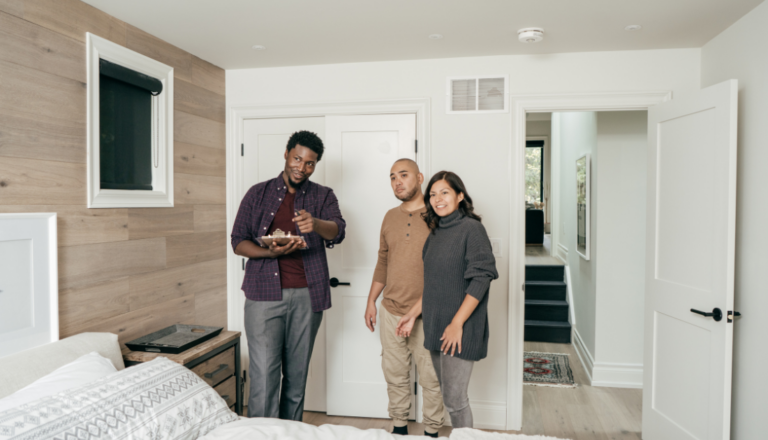As a medical student transitioning into residency, you are about to embark on a new chapter in your life and the next step on your journey to becoming a physician. So much is changing in a short amount of time, and there are many decisions to be made, including where you will live.
Both renting and buying have their own advantages and disadvantages, and the choice depends on your personal needs and future plans. To help you navigate this decision, we spoke to three physicians who have been there before.
Here are insights from Disha Spath, MD, CEO and Founder of The Frugal Physician, Nii Darko, DO, MBA, FACS, Host of Docs Outside the Box Podcast, and Leif Dahleen, MD, Physician on FIRE, about their tips for renting vs. buying and one thing they want new residents to know.
What tips do you have for residents when considering renting vs. buying in training?
DS: The decision to rent or buy in residency is a nuanced one based on future plans and location. Generally speaking, it’s a good idea to rent if the projected time one is going to be there is shorter than 4-5 years. There are a lot of costs and headaches associated with homeownership that make it undesirable for residents, especially in this high interest-rate environment.
However, buying can be the right choice if someone is planning on staying to work in the same town in which they are doing residency. Buying a home in residency can also be a good way to kickstart a rental portfolio. My husband and I bought our residency home with plans to turn it into a rental property later, and that worked out for us. But, we specifically bought a house that had good rental potential in a less-than-desirable neighborhood at the time.
It is important to run the numbers and see what works in your individual situation. There are many rent vs. buy calculators out there, such as this one: https://www.calculator.net/rent-vs-buy-calculator.html.
Also, if considering buying a property for rental potential, make sure it cash flows positive (results in a net gain at the end of the year, after all expenses are accounted for) by running the numbers on a calculator such as this: https://www.calculator.net/rental-property-calculator.html.
LD: Do as I say, not as I did. I bought a one-bedroom condo, and it worked out okay, but I recommend renting to the vast majority of residents.
The break-even point for owning vs. renting is five to seven years, on average, which is on the longer end of the residency +/- fellowship spectrum, and it’s common for those who move on to fellowship to do so in a different city. Additionally, some interns and residents realize they chose the wrong specialty for them, and they may need to move to join a program in a field better suited to them. It’s much easier and less costly to break a lease than it is to sell a home you’ve only lived in for a handful of months.
Some people feel that renting is “throwing money away,” and it’s true that owned homes can and usually do appreciate, but there are a lot of costs of home ownership that are often underappreciated or ignored when running the numbers.
You’ll hear anecdotes from those who bought the right place at the right time, lived there for 6+ years, and made a tidy profit when moving on, but I believe most residents should opt to rent.
ND: As a medical resident, you have a lot on your plate. Between long hours at the hospital, studying for board exams, and trying to maintain some semblance of social life, the last thing you want to worry about is finding a suitable place to live.
Deciding on whether to rent vs. own is a decision that can add unneeded stress during your first year of residency, especially if you’re unfamiliar with the city you’re moving to. My advice to first-year residents is always to rent first. Here are some tips to keep in mind when looking for a place to live:
- Look for proximity to the hospital
- Consider the neighborhood
- Determine how much you can afford to pay in rent each month
- Check for lease flexibility in terms of lease length
Check out this clip about why residents should rent from Episode 264 of Docs Outside the Box podcast.
What is one tip you would give to those transitioning into residency?
DS: I would remind them that their first task as a resident is to learn their craft. So focus on learning medicine and don’t stress if you don’t understand all of personal finance before starting as an attending. If there is an easy month, pick up a personal finance book and give it a read. Just knowing the basics will give you a huge head start.
LD: You’ll work harder in the next 3 to 7 years than you ever have and ever will. Remember, it gets better, but now is the time to focus on becoming a better doctor.
ND: Learn to ask for help when it’s needed. It’s expected that you will not know everything when starting residency. As a medical student, you may have been used to working independently, but as a resident, you’ll be part of a healthcare team including attendings, nurses, and other healthcare professionals.
Don’t hesitate to reach out for help or advice when needed, especially when it involves assistance with a difficult patient case. Asking for help is a sign of strength and maturity, not weakness. Ultimately, being open to feedback and guidance will help you provide the best possible care and help you grow as a physician.
Read more about the transition to residency
We spoke to Disha, Nii, and Leif about other topics surrounding the transition to residency. Check out:
Find more residency-specific guides on our Resources page, or check out one of these:

